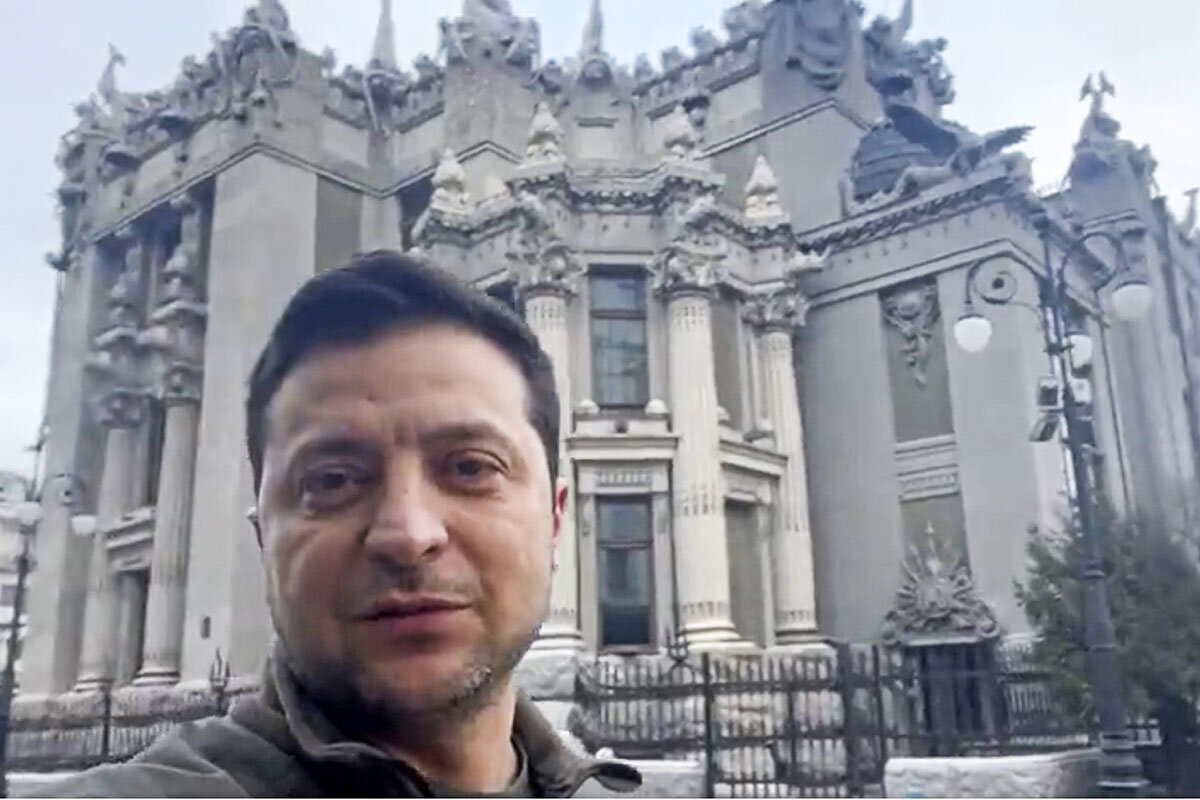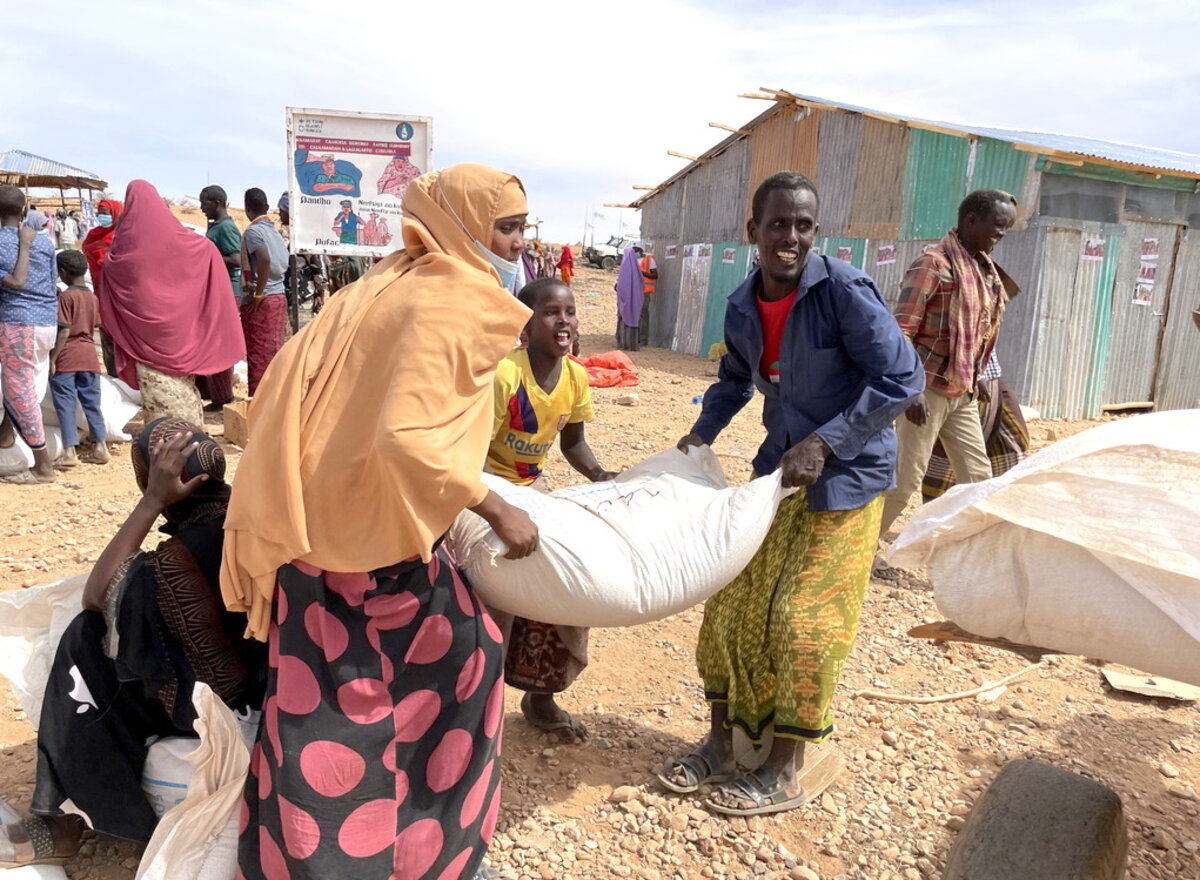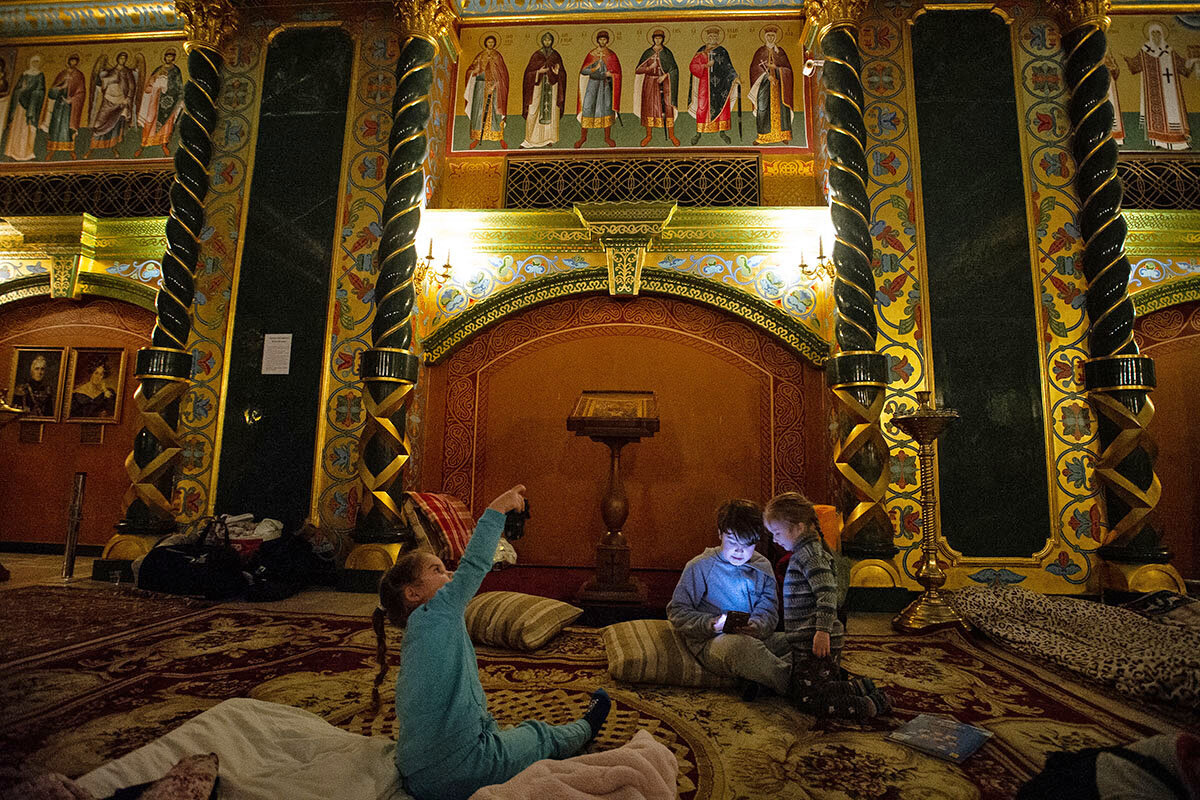Even among his detractors, President Volodymyr Zelenskyy has won respect for his brave resistance to Russian attacks, his urgent sincerity, and his empathy for the plight of Ukrainians.
Monitor Daily Podcast
- Follow us:
- Apple Podcasts
- Spotify
- RSS Feed
- Download
 David Clark Scott
David Clark Scott
Gas stations are emerging as intersections of moral values in the United States.
In a war often framed as a stark choice between good and evil, Republicans and Democrats say they want to punish Russia for invading Ukraine. One poll shows 71% of Americans back a Russian oil ban even if it pushes gas prices higher.
Last year, Russia supplied about 8% of all U.S. oil and gas. That means that a trip to the gas station may pose this question: For every $10 spent at the pump, are Americans essentially sending 80 cents to help the Russian military kill Ukrainian civilians?
“We will not be part of subsidizing Putin’s war,” President Joe Biden said Tuesday in announcing a ban on imports of Russian oil and gas. He also acknowledged that “defending freedom is going to cost.”
If gas prices rise past $5 per gallon, the moral certainty Americans profess may get a little murkier as they weigh tough choices.
Let’s look at some of those trade-offs. Will the U.S. replace Russian oil with fossil fuel from a corrupt, autocratic regime? Venezuela used to be a major U.S. supplier but was hit with sanctions. In recent days, the Biden administration has opened talks on restoring Venezuelan imports. It’s also reportedly reached out to Saudi Arabia (see our story tomorrow), and to Iran to restore a nuclear pact that would lift sanctions on its oil. Each of these moves creates new moral trade-offs.
And in pursuit of energy independence – and to reduce inflation – Mr. Biden knows pressure is building to reopen the Keystone pipeline project with Canada, to revive nuclear power, and to open more U.S. territory to drilling. In announcing the ban, he noted there are 9,000 drilling permits granted on federal land, but not being used by oil firms.
Americans may no longer be subsidizing Russian aggression, but moral stands are seldom as black and white as they may appear.










